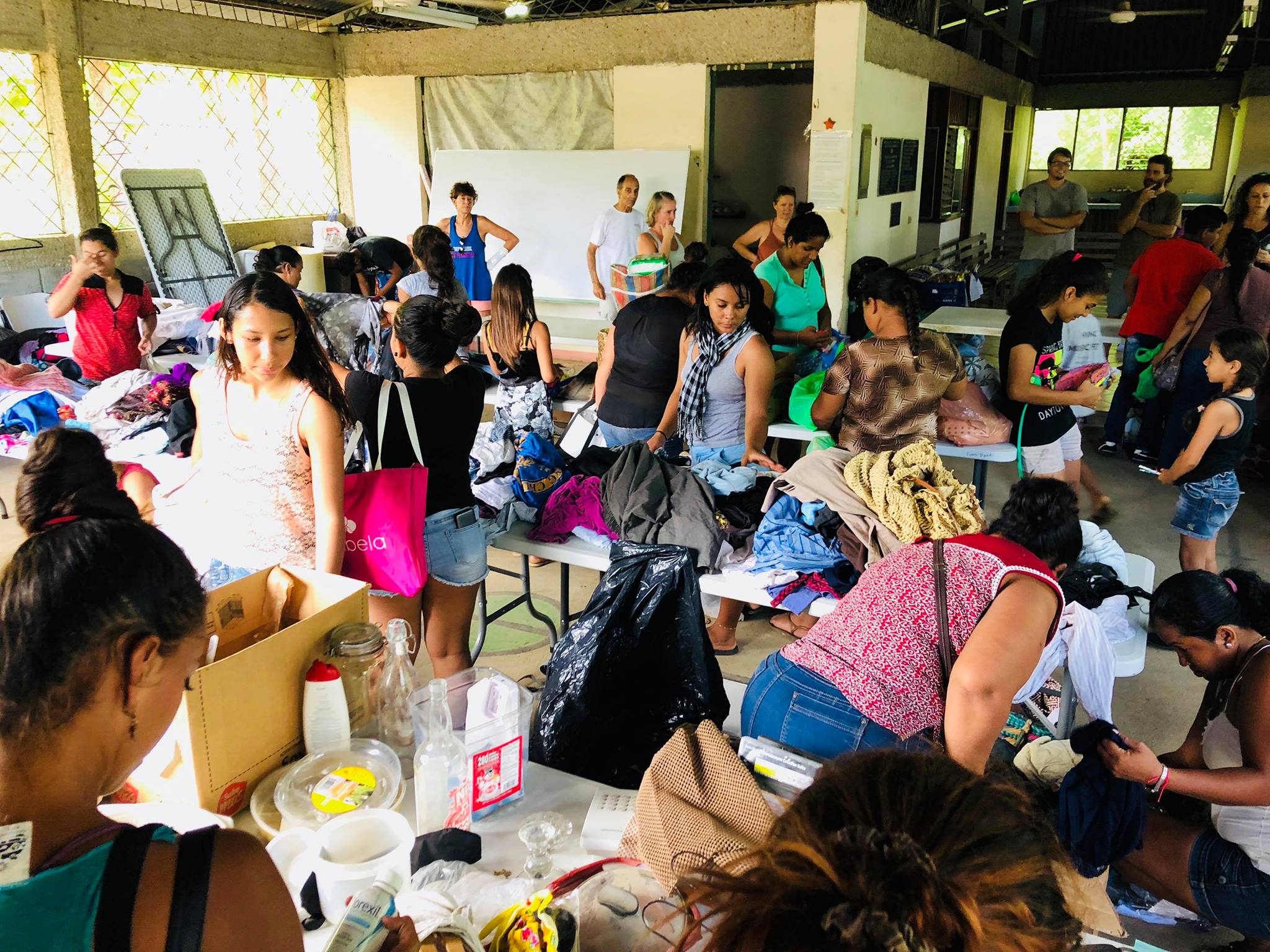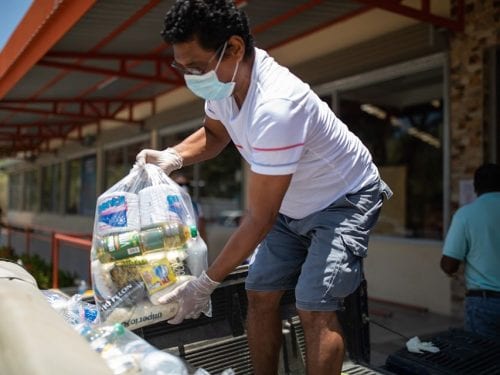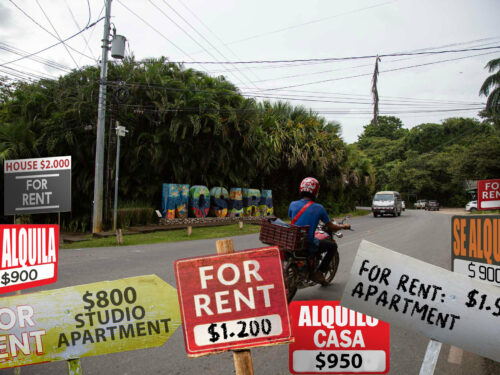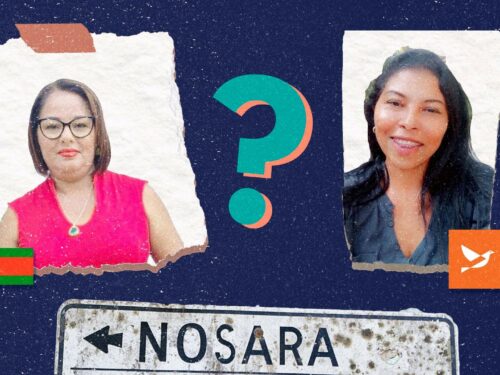
On a sweltering Saturday in June, a blur of babies on hips, expat volunteers, and mothers lining up for cartons of food fill a community center in downtown Nosara.
Bright-eyed Noylin García Álvarez, 20, arrived with her 5-year-old son as her mother babysat her 6-month-old twins. Álvarez comes to the FUCAN building once a month to receive rice, beans, oil, Corn Flakes, milk, and — if she’s lucky — diapers. She hires a tuk tuk to bring the bounty home.
It’s very important because I don’t work and I have three kids. It’s hard for me,” said the single Guanacastecan mother.
Undernourishment in her province is the highest in the country for schoolchildren between the ages of 6 and 12, according to Census data, at 2.5 percent.
In August, 163 locals like Álvarez were served by Nosara Food Bank, a volunteer-run association that distributes food and other household necessities to families faced with food insecurity.
Though food bank founder Linda Tarlow moved back to the U.S. in July, two Tico and three U.S volunteers — Reagan Grant, Magda Hubbman, Seidy Juarez Rosales, Jill Ryan, and Jo Ellen Nott, the interim director — will lead the food bank forward as a team effort. There’s a general consensus to focus on families that present the most need.
The intent is to be as fair as possible so the most amount of people get help,” said Nott.
The food bank served 42 families in August, including 101 children. During rainy September, when need spikes due to the low season’s fewer jobs, Tarlow said up to 70 families need to be served.
Besides a few food bins that collect donations around Nosara and some monetary donations, the program usually receives the bulk of its goods from Banco de Alimentos, a national not-for-profit that says it distributes 100 tons of food each week across the country, impacting over 22,000 people a day. Some of the food Banco de Alimentos receives for redistribution are slightly damaged products that are still consumable, but unfit for sale.
One of the organization’s three headquarters is located in Guanacaste, in the Huacas community of Santa Cruz. Thanks to Banco de Alimentos and buying any extra food needed in bulk, Nosara Food Bank only spends around $5 per recipient each month. Terratour Nosara, a transport service, drives the goods back to Nosara for free.
Diagnosing need
After this past June food bank wrapped up, Tarlow and volunteer Jackie Haile climbed into Tarlow’s car loaded with extra crates of food, on a mission to track down families who didn’t show up.
Haile, sitting shotgun, reflected on the rewarding experience of volunteering. She was moved by how little people can live with in Nosara.
“I came home after my first food bank experience and went through my whole closet, and just got rid of so much stuff,” Haile said.
Haile’s purging shows how Nosara is a study of extremes. Playa Guiones can feel like a foreign playground with its surf, yoga, and hotels, while the average family receiving food bank support earns below $300 a month. Nearly 6 percent of the Chorotega province lives in extreme poverty — 2 percent steeper than the Central Valley — according to National Institution of Statistics and Census data from 2017.
The recipients are primarily women, children, and people with disabilities.
Volunteer Jill Ryan visits the applicants’ homes to meet the families and corroborate their applications. Successful applicants receive a call alerting them to the upcoming distribution, usually the first Saturday of every month.
After six years of operation, the food bank has become attuned to the needs of Nosareños based on the rhythm of the seasons. Around 75 percent of recipient families are regulars, while others are selected as special cases, such as victims of the rainy season when fickle weather cancels men’s outdoor jobs. Funds permitting, some food bank volunteers are helping to find a social worker who would help recipients apply for pensions.
A lot of people, to be honest with you, cannot read or write, so you’re helping fill out the application with them,” Ryan said.
Not only are some of them illiterate, according to multiple volunteers but often these women are treated as second-class citizens within their own communities. Many are limited in their mobility and unable to work; some are mothers busy with children while others have husbands who don’t allow them jobs.
Jo Ellen Nott would like the food bank to collaborate with women’s support groups that deal with the obstacles of poverty. Seidy Juarez Rosales, a pastor and original Nosara Food Bank collaborator, reminds local women that the fathers of their children should take responsibility in contributing to the household, even if they don’t live under the same roof.
“Children are in harm’s way the most,” Rosales said.
As the food bank must turn down some applicants each month, the challenge remains to allocate limited goods throughout a community in need.
“The hardest thing we do is pick who to feed,” Tarlow said.







Comments